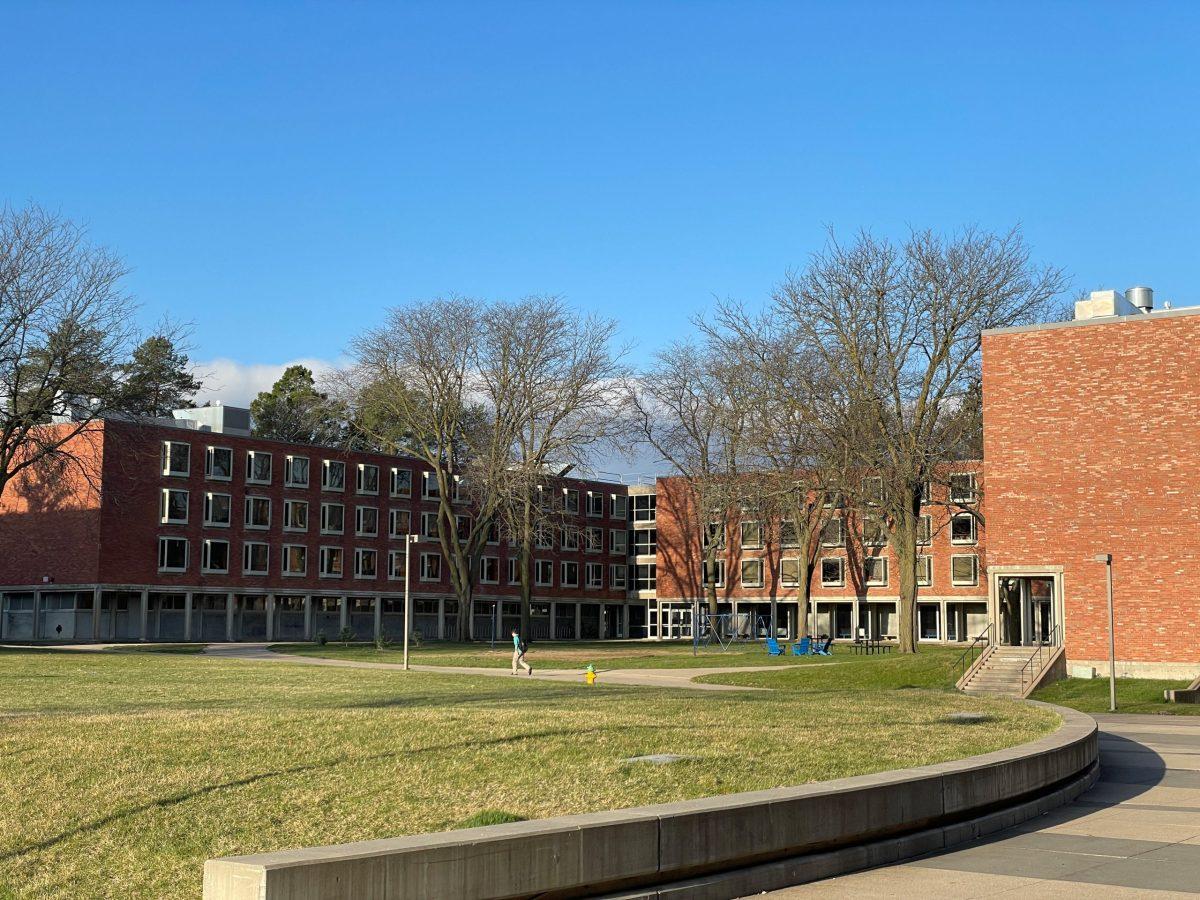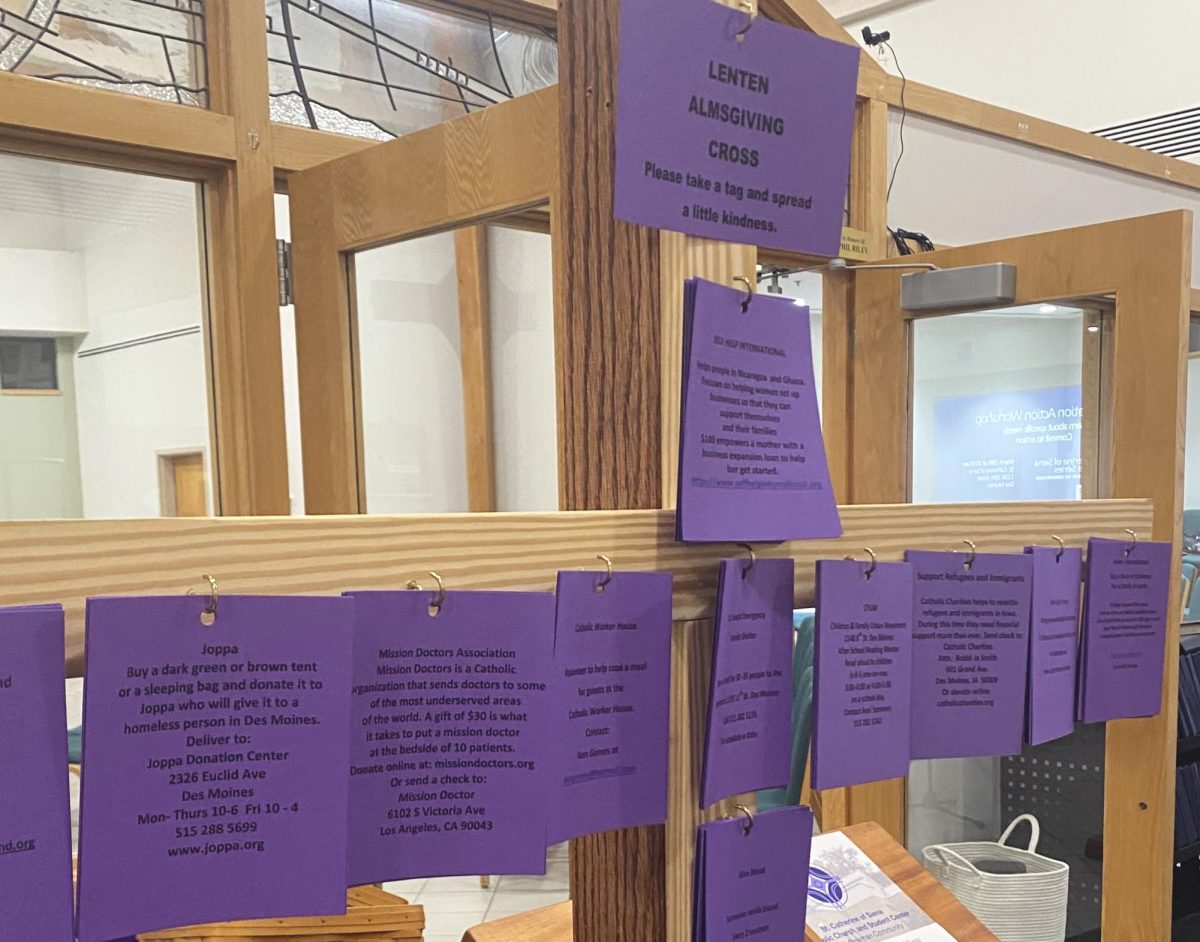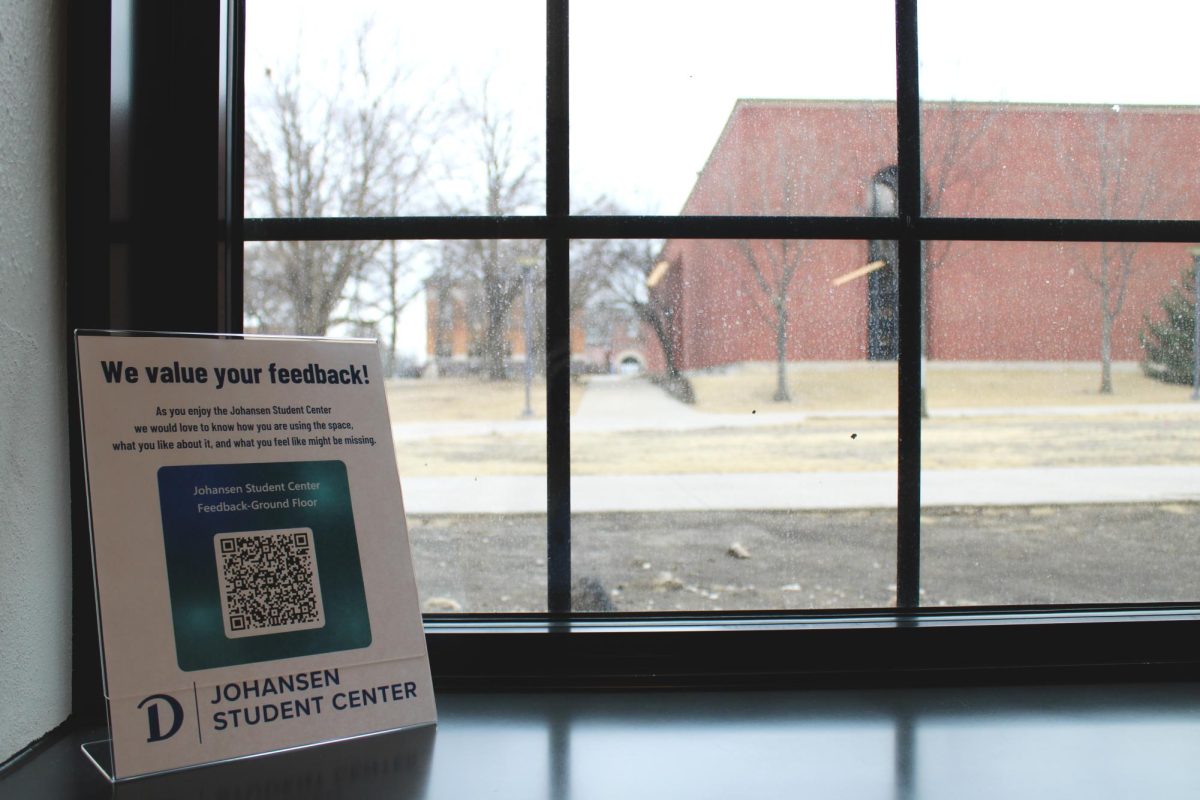On Feb. 9, 2024, President Marty Martin released the approved room, board and fee rates for the 2024–2025 academic year. Next year, on-campus students will be paying $12,155 for room and board, according to a chart provided to The Times-Delphic by Chief Student Affairs Officer Jerry Parker.
In his email to all students, Martin said that although Drake has a tuition guarantee — meaning what students pay in tuition is fixed and will not increase from year to year — fees and housing costs can fluctuate.
Martin said some factors that can also affect room and board costs are the room type, meal plan and a student’s decision to live on or off campus.
“We recognize that a college education is a significant investment,” Martin said in the email. “We want to assure you that these rates were determined with great care. We are deeply committed to being good stewards of the money entrusted to us by parents and students, and mindful of the choice you make to attend Drake.”
Parker said that, every year, Drake takes into account the rate of inflation and evaluates pricing from peer institutions when determining how much students will pay for room and board. Drake utilized the Higher Education Price Index and the Consumer Price Index for this review process, according to Parker.
“Drake is not immune from inflationary costs,” Parker said in an email interview.
Parker said Drake’s housing cost has been below the actual inflation rate for the last two years and the housing cost is increasing at the same rate as current inflation trends for the 2024-2025 academic year.
“Our goal is to try and keep costs at or below the rate of inflation when it comes to real expenses related to utilities, housing, food, etc,” Parker said in an email.
According to the U.S. Bureau of Labor Statistics, the Consumer Price Index for “All Urban Consumers” went up 3.8% in one year. Drake increased its housing prices by 2.49% between the 2022-2023 and 2023-2024 school years. Drake’s housing prices will increase by 2.5% for next year.
“Drake is lower than our peers as it relates to costs for room and board,” Parker said. “We try and minimize our room and board increases while ensuring the quality of our halls and upgrades to them, such as flooring, painting, tuckpointing, furniture, HVAC, etc.”
However, these rates left some students questioning whether they can return to Drake next year. First-year Fran Conner said she feels like she can’t return to Drake next year because other colleges offer better packages.
“What am I going here for?” Conner said. “I’m paying for school, but I’m actually paying twice as much for my housing than I am for actual education.”
According to Conner, other schools have cheaper housing and don’t make students live on campus their second year. Conner said the University of Northern Iowa’s room and board for out-of-state students like herself is $9,600. She also received a free ride to Clark University in Worcester, Massachusetts. A single dorm at Clark costs between $10,000-$11,000, but Conner said the difference is that she was offered housing scholarships to help cover those costs.
“Ultimately, I stuck with Drake because of the education quality and opportunities,” Conner said. “I do not regret my decision, but I do have financial consequences because of it.”
Drake’s two-year requirement is a big reason that Conner is considering transferring. The two-year on-campus living requirement has a large effect on people’s future as it could cause them to have to go into debt and affect their credit, according to Conner.
“I’m going to be in severe debt just to live here when I could find an apartment that’s five minutes away that’s cheaper,” Conner said.
Conner said she finds the two-year on-campus living requirement infantilizing. Drake’s housing contract, which every student living on-campus signs, mandates that they live on campus for two years or live within 45 miles of Drake with a legal guardian. Conner believes that college is supposed to be a transition to independence and that this parental restriction stifles that transition.
The University should also be more transparent about this section of the contract, Conner said.
“Some people will go into pretty severe debt because of [the two-year on-campus living requirement],” Conner said. “They’ll be set behind on trying to find another apartment. They might not be able to because they’re still trying to pay back what they already owe.”
Parker said that living on campus, especially for the first two years, increases student retention and persistence rates due to higher levels of engagement and connection with one’s community. First-year Liv Poock said she likes the two-year on-campus living requirement and agrees that there is a community-building aspect to it.
“It is a good way to live with people you are going to be taking classes with and force you to make friends,” Poock said.
Another first-year, Julen Meyers, said the requirement is unnecessary because Des Moines housing is cheaper. He said he does understand it though.
“The freshman dorms are pretty nice compared to other dorms in the country,” Meyers said. “I don’t think that the Quads are worth the money. I think they are nice [and] it’s a great experience, but the amount of space we are getting for how much we are paying is a little unfair.”
Conner said the financial burden she is under has made it difficult to put all her focus into classes, she said. On top of taking 18 credits, Conner is working a full-time job, which she said is exhausting.
“It really does feel like I might not be here in two years, so what’s the point of trying?” Conner said. “If it was my choice, I wouldn’t be working to focus on my studies.”
According to Parker, when room and board rates change, the Financial Aid Office factors these rate changes into a student’s cost of attendance package, so it is adjusted accordingly. Parker said he is always happy to address financial concerns students have, whether that is through the Residence Hall Association or individually.
“When questions come up from students regarding how rates are set, I’m upfront about the process we take in assessing HEPI [Higher Education Price Index], CPI [Consumer Price Index], and looking at our peer institutions,” Parker said.
According to Conner, though, the school is not doing enough to adequately address the rising cost of housing, and she feels trapped in her housing contract. Conner said that she understands the University has rules and reasons but feels like she had no choice but to sign this contract.
Conner reached out to Financial Aid to inquire about additional assistance with room and board. She said that her email exchanges with Financial Aid felt dismissive and she went through several individuals until someone listened to her story.
“If you feel like something is wrong, you need to keep pushing for what you feel is right,” Conner said.








